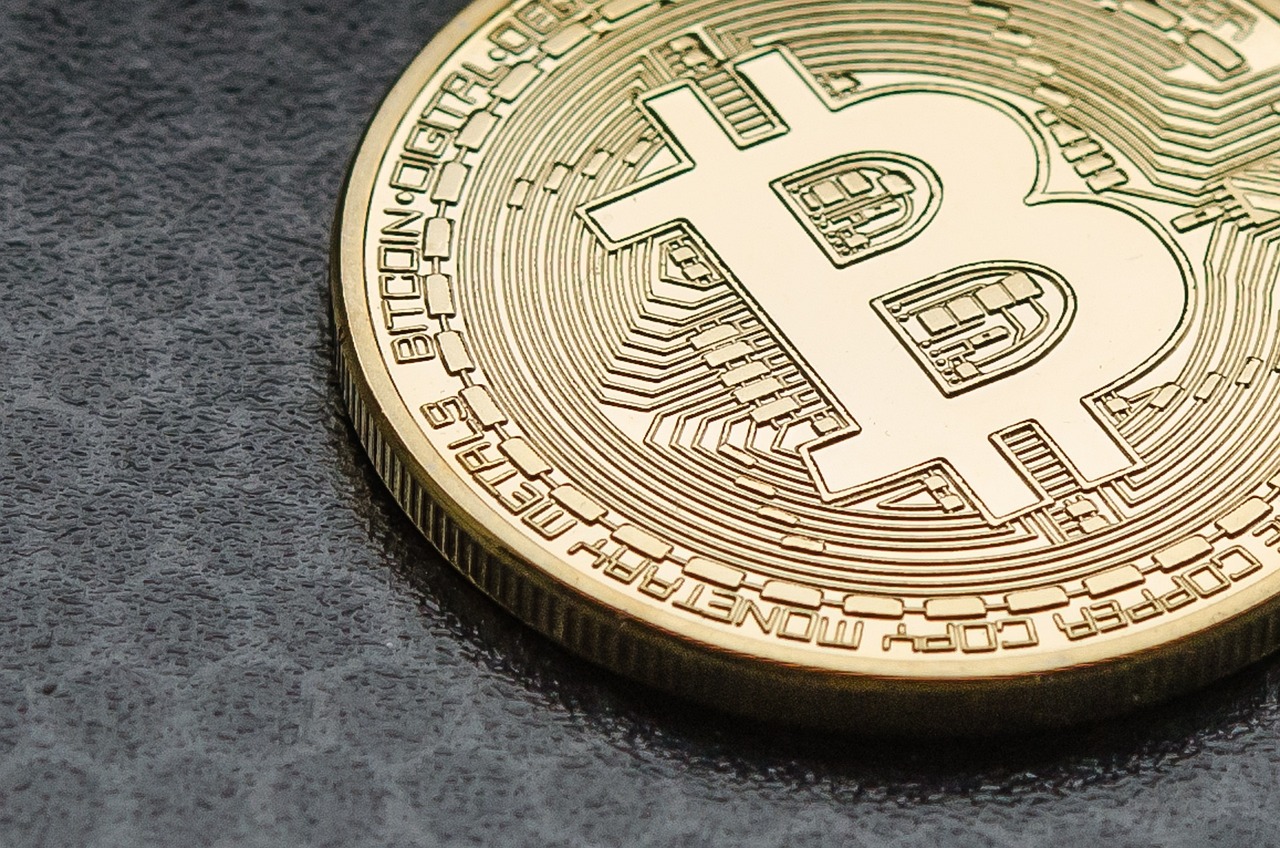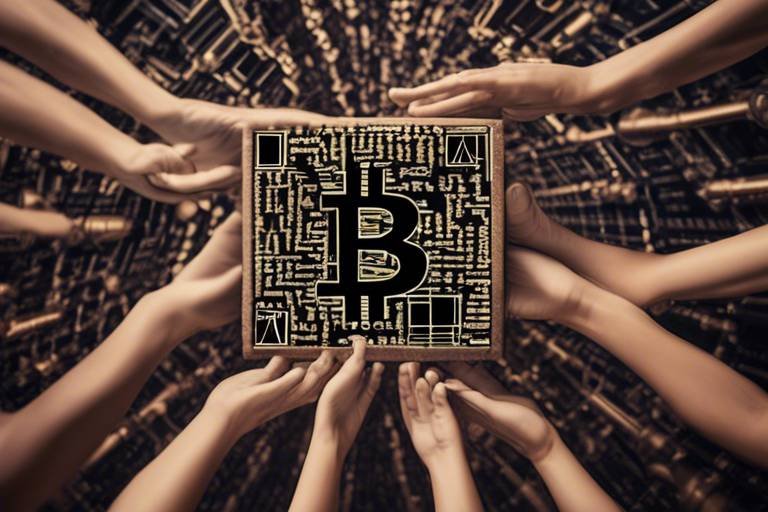How Blockchain is Enabling Fair Compensation for Creators
In today's digital landscape, creators often find themselves battling for fair compensation amid a sea of intermediaries, complex contracts, and opaque payment systems. But what if there was a way to cut through the noise and ensure that creators receive their rightful earnings without the hassle? Enter blockchain technology, a revolutionary force that is reshaping how we think about compensation in creative industries. This article explores the transformative impact of blockchain on creator compensation, highlighting its potential to ensure transparency, security, and fairness.
At its core, blockchain is a decentralized digital ledger that records transactions across multiple computers. This means that no single entity has control over the entire system, making it inherently secure and resistant to fraud. Imagine a giant, transparent notebook where every transaction is recorded and visible to everyone involved, yet no one can alter past entries. This decentralized nature of blockchain not only enhances security but also fosters trust among creators and consumers alike. By eliminating the need for intermediaries, blockchain paves the way for direct transactions, ensuring that creators receive their payments promptly and without hefty fees.
Why is fair compensation so crucial for creators? Well, think about it: when artists, musicians, writers, and other creators are not adequately compensated, it stifles their ability to innovate and produce new content. Fair compensation directly impacts their livelihoods, allowing them to invest time and resources into their craft. Furthermore, when creators are paid fairly, it encourages them to keep pushing boundaries and exploring new ideas, fostering a vibrant ecosystem of creativity. In a world where content is king, ensuring that creators receive their due is not just a moral obligation; it's essential for the health of the entire creative industry.
One of the most exciting applications of blockchain technology is the use of smart contracts. These are self-executing contracts with the terms of the agreement directly written into code. Imagine a vending machine: you insert money, select your item, and the machine automatically delivers it. Smart contracts operate on a similar principle. They automate agreements between creators and consumers, ensuring that payments are made instantly and fairly. This not only reduces the need for intermediaries but also minimizes disputes, as the terms of the agreement are clear and unchangeable. With smart contracts, creators can focus on what they do best—creating—while the technology takes care of the financial details.
Decentralized platforms are emerging as a beacon of hope for creators seeking to reclaim their autonomy and revenue potential. These platforms allow creators to connect directly with their audience, eliminating the middlemen that often take a large cut of their earnings. Platforms like Ethereum and IPFS enable artists to showcase their work, receive payments in cryptocurrency, and engage with their fans without any barriers. This direct interaction not only enhances revenue potential but also fosters a sense of community support, as fans feel more connected to the creators they admire. In this new paradigm, creators are empowered to take control of their careers and financial futures.
Real-world examples abound where blockchain has successfully improved compensation structures for creators. For instance, Audius, a decentralized music streaming platform, allows artists to upload their music directly and earn 90% of the revenue generated from their streams. Similarly, Foundation has created a marketplace for digital art where artists can sell their work as NFTs, ensuring they receive fair compensation for their creativity. These success stories illustrate how blockchain technology is not just a theoretical concept but a practical solution that is already making a difference in the lives of creators across various sectors.
Despite its many advantages, the adoption of blockchain technology in creative industries is not without challenges. Technical complexities can be daunting for creators who may not be tech-savvy, while regulatory issues can create uncertainty around the legality of blockchain transactions. Additionally, there is often resistance to change, as traditional systems have been in place for so long. However, as more creators begin to recognize the benefits of blockchain, these obstacles can be overcome, paving the way for a more equitable compensation landscape.
Non-Fungible Tokens (NFTs) have taken the art and entertainment world by storm, providing unique opportunities for creators to monetize their work. Unlike traditional assets, NFTs are unique digital tokens that represent ownership of a specific item, whether it’s a piece of art, music, or even a tweet. This technology allows creators to sell their work directly to consumers while retaining ownership rights. Moreover, NFTs can be programmed to ensure that creators receive a percentage of future sales, creating ongoing revenue streams. This paradigm shift is empowering creators to explore new avenues of income and further solidifying their rights in the digital space.
As we look to the future, the potential for blockchain technology to revolutionize creator compensation is immense. Emerging technologies, such as artificial intelligence and augmented reality, could further enhance the ways creators engage with their audiences and monetize their work. Additionally, as more industries adopt blockchain, we may see a shift in consumer behavior, with people becoming more willing to support creators directly. This evolving landscape suggests a future where creators are not just compensated fairly but are also celebrated as integral parts of the cultural fabric.
In summary, the advent of blockchain technology marks the beginning of a new era for creators. By fostering transparency, security, and fairness, blockchain has the potential to transform how creators are compensated in the digital age. As we continue to explore this exciting frontier, it’s clear that empowering creators through fair compensation is not just beneficial for them, but for society as a whole. The more we support creativity, the richer our cultural landscape becomes.
- What is blockchain technology? Blockchain is a decentralized digital ledger that records transactions across multiple computers, ensuring security and transparency.
- How do smart contracts work? Smart contracts are self-executing agreements where the terms are directly written into code, automating transactions between parties.
- What are NFTs? Non-Fungible Tokens (NFTs) are unique digital tokens that represent ownership of a specific item, allowing creators to sell their work directly to consumers.
- What challenges does blockchain face in creative industries? Challenges include technical complexities, regulatory issues, and resistance to change from traditional systems.

Understanding Blockchain Technology
Blockchain technology is often described as a digital ledger, but it's so much more than that. Imagine a book that everyone can see, but no one can alter without consensus. This is the essence of blockchain: a decentralized network where transactions are recorded in a way that is both secure and transparent. Each transaction is grouped into a block, and once a block is filled, it is linked to the previous block—hence the term "blockchain." This chain of blocks creates a permanent record that is nearly impossible to tamper with, making it an ideal solution for industries that require trust and accountability.
The decentralized nature of blockchain means that there is no single point of failure. Instead of relying on a central authority, the power is distributed among all participants in the network. This structure not only enhances security but also fosters a sense of community among users. Each participant has access to the same information, which reduces the chances of fraud and ensures that everyone is on the same page. In a world where data breaches and privacy concerns are rampant, blockchain offers a refreshing alternative that prioritizes user control and data integrity.
Now, let's dive a little deeper into how blockchain functions. At its core, blockchain utilizes a consensus mechanism to validate transactions. There are several types of consensus algorithms, such as Proof of Work and Proof of Stake, each with its own unique approach to validating transactions. For instance, in Proof of Work, miners solve complex mathematical problems to add a new block to the chain, while in Proof of Stake, validators are chosen based on the number of coins they hold. This process not only secures the network but also incentivizes participants to act honestly.
One of the most compelling aspects of blockchain technology is its ability to facilitate smart contracts. These are self-executing contracts with the terms of the agreement directly written into code. Imagine a vending machine: you insert money, make a selection, and the machine automatically delivers your snack. Smart contracts operate similarly, executing automatically when predefined conditions are met. This eliminates the need for intermediaries, streamlining processes and reducing costs. For creators, this means they can receive payment instantly upon the completion of a transaction, enhancing their cash flow and allowing them to focus on what they do best—creating.
In summary, understanding blockchain technology is crucial for grasping its potential impact on various industries, especially in the realm of creator compensation. By providing a secure, transparent, and decentralized framework, blockchain is paving the way for a fairer system where creators can finally receive the compensation they deserve. As we continue to explore its applications, it's clear that blockchain is not just a technological innovation; it's a revolutionary shift in how we think about ownership, trust, and value in the digital age.

The Importance of Fair Compensation
When we think about the world of creativity—be it art, music, writing, or any other form of expression—one thing becomes glaringly obvious: fair compensation is not just a luxury; it's a necessity. Imagine pouring your heart and soul into a piece of artwork, only to find out that the revenue generated from it barely covers your expenses. This scenario is all too common for many creators, and it highlights a fundamental issue within creative industries. Fair compensation not only ensures that creators can sustain their livelihoods but also acts as a catalyst for continued innovation and creativity.
Consider this: when creators are adequately compensated, they are more likely to invest time and resources into their work. They can afford to experiment, explore new ideas, and push the boundaries of their craft. On the flip side, when compensation is unfair or inconsistent, it can lead to a cycle of frustration and disillusionment. Creators may feel undervalued and, as a result, might abandon their passion altogether. This is detrimental not just to the individual but to the entire creative ecosystem.
Moreover, fair compensation fosters a sense of community and support among creators. When artists and creators feel that their work is valued, they are more inclined to collaborate and share their experiences with others. This creates a vibrant culture where creativity can thrive. For instance, when musicians receive fair royalties from streaming platforms, they are encouraged to produce more music, enriching the industry as a whole. In contrast, unfair compensation can lead to a stagnation of talent, as emerging creators struggle to find their footing in an unforgiving landscape.
To further illustrate the significance of fair compensation, let's consider a few key points:
- Financial Stability: Fair compensation allows creators to maintain financial stability, enabling them to focus on their craft rather than worrying about making ends meet.
- Encouragement of Innovation: When creators are rewarded fairly, they are more likely to take risks and innovate, leading to groundbreaking work that benefits everyone.
- Community Building: Fair compensation fosters a supportive community among creators, promoting collaboration and shared growth.
Ultimately, the importance of fair compensation cannot be overstated. It serves as the foundation upon which a thriving creative industry is built. As we delve deeper into the potential of blockchain technology to revolutionize compensation structures, we must keep in mind that the ultimate goal is to create an environment where creators feel valued, supported, and inspired to continue sharing their unique voices with the world.

Smart Contracts: A Game Changer
Imagine a world where agreements are not just verbal promises or ink on paper, but rather automated, self-executing contracts that ensure fairness and transparency. This is the magic of smart contracts. Built on blockchain technology, these digital contracts are revolutionizing how creators interact with their audiences and clients. So, what exactly are smart contracts, and why should creators be excited about them?
At their core, smart contracts are programmatic agreements that automatically enforce and execute the terms of a contract when predetermined conditions are met. Think of them as a digital vending machine: you insert your money, select your snack, and the machine delivers it without the need for a cashier. In the same way, smart contracts eliminate the need for intermediaries, ensuring that creators receive their compensation instantly when their work is consumed or purchased.
One of the most significant benefits of smart contracts is their ability to provide transparency. Every transaction is recorded on the blockchain, which means that both creators and consumers can verify the terms of the agreement and the execution of payments. This level of transparency fosters trust between creators and their audience, as it reduces the chances of disputes and misunderstandings. With smart contracts, creators can focus on what they do best—creating—while the technology handles the business side of things.
Moreover, smart contracts are highly customizable, allowing creators to set specific terms that suit their unique needs. For instance, a musician could create a smart contract that stipulates that they receive a certain percentage of royalties every time their song is streamed. This not only ensures that they are compensated fairly but also encourages them to produce more music, knowing that their efforts will be rewarded.
To illustrate the impact of smart contracts on creator compensation, consider the following table that outlines the traditional compensation model versus the smart contract model:
| Traditional Model | Smart Contract Model |
|---|---|
| Involves multiple intermediaries (agents, publishers) | Direct transactions between creators and consumers |
| Delayed payment cycles | Instant payments upon fulfillment of contract |
| Limited transparency | Full transparency via blockchain |
| Potential for disputes over payments | Automated execution reduces disputes |
As you can see, smart contracts not only streamline the payment process but also enhance the overall experience for both creators and consumers. However, it’s essential to understand that while smart contracts are a game changer, they are not without challenges. Creators must be educated about how to create and implement these contracts effectively, ensuring that they are set up correctly to avoid any potential pitfalls.
In conclusion, smart contracts are reshaping the landscape of creator compensation, offering a more efficient, transparent, and fair way for creators to monetize their work. By automating transactions and reducing the need for intermediaries, these contracts empower creators to take control of their financial futures, ultimately leading to a more vibrant and innovative creative ecosystem.
- What are smart contracts? Smart contracts are self-executing contracts with the terms of the agreement directly written into code, enabling automatic execution when conditions are met.
- How do smart contracts benefit creators? They provide instant payments, enhance transparency, and reduce the need for intermediaries, allowing creators to focus on their work.
- Are smart contracts secure? Yes, smart contracts are built on blockchain technology, which is known for its security and immutability.
- Can anyone create a smart contract? While it requires some technical knowledge, there are user-friendly platforms available that allow creators to set up smart contracts without deep coding skills.

Decentralized Platforms for Creators
In today's digital landscape, decentralized platforms are emerging as a revolutionary force for creators across various industries. Unlike traditional platforms that often act as intermediaries, these decentralized systems allow creators to connect directly with their audience, cutting out the middleman and ensuring that the majority of the revenue goes straight to the artists themselves. Imagine a world where musicians, artists, and writers can showcase their work without the constraints imposed by corporate interests—this is the promise that decentralized platforms bring to the table.
One of the most compelling aspects of decentralized platforms is their ability to foster a sense of community. Creators can engage with their fans in real-time, receiving direct feedback and building a loyal following. This interaction not only enhances the creator's relationship with their audience but also encourages collaboration and innovation. For instance, a musician can release a new song and instantly see how their audience responds, allowing them to adapt and evolve their style based on direct input.
Moreover, decentralized platforms often operate on blockchain technology, which means that every transaction is recorded transparently. This transparency is vital for creators who want to ensure they are fairly compensated for their work. With smart contracts, payments are executed automatically once certain conditions are met, eliminating the delays and uncertainties that often plague traditional payment methods. For example, if a creator sells a digital artwork, the payment can be transferred instantly and securely as soon as the purchase is made, providing peace of mind for both parties involved.
Some notable decentralized platforms include:
- Ethereum: This blockchain platform allows developers to create decentralized applications (dApps) that can facilitate a wide range of creative projects, from music to visual arts.
- OpenSea: A marketplace for NFTs where creators can sell their digital art directly to consumers, ensuring they retain a larger share of the profits.
- Patreon Alternatives: Platforms like Ko-fi and Buy Me a Coffee enable creators to receive support directly from their fans without heavy fees associated with traditional crowdfunding.
These platforms not only enhance the revenue potential for creators but also empower them to maintain control over their work. In a world where intellectual property can easily be exploited, decentralized platforms provide a safeguard, allowing creators to assert their ownership rights more effectively. The use of Non-Fungible Tokens (NFTs) is a prime example of how these platforms are changing the game, allowing creators to tokenize their work and sell it as unique digital assets.
As we look to the future, the potential for decentralized platforms to reshape the creative landscape is immense. With ongoing advancements in blockchain technology and a growing awareness of the importance of fair compensation, more creators are likely to embrace these tools. The era of relying solely on traditional platforms for exposure and income is fading, making way for a more equitable system where creators can thrive on their own terms.

Case Studies of Successful Implementation
When we talk about the transformative power of blockchain technology, it’s not just theory; there are real-world examples that showcase its potential to revolutionize creator compensation. Let’s dive into some compelling case studies that illustrate how blockchain is making waves across various creative industries.
One of the standout examples is Royalty Exchange, a platform that allows musicians to sell their future royalties as an investment. By leveraging blockchain, artists can tokenize their music rights, enabling them to receive upfront payments while investors earn a share of the royalties. This method eliminates traditional intermediaries, ensuring that artists receive a fair share of the profits directly. The platform has successfully facilitated numerous transactions, demonstrating how blockchain can streamline and enhance the compensation model for musicians.
Another exciting case is the rise of Artory, a blockchain-based registry for art. Artory provides a secure and transparent way for artists to authenticate their works and track ownership history. This not only protects artists from fraud but also enhances their ability to monetize their creations. By ensuring that provenance is recorded on a tamper-proof ledger, Artory empowers artists to command higher prices for their work, knowing that buyers can trust the authenticity of what they are purchasing.
In the realm of video games, Enjin has taken the lead by integrating blockchain technology to create a vibrant ecosystem for game developers and players. Enjin allows developers to create in-game assets that are truly owned by players, thanks to the use of Non-Fungible Tokens (NFTs). This means that players can buy, sell, and trade their assets outside of the game environment, creating new revenue streams for both developers and players. The success of Enjin highlights how blockchain can empower creators by providing them with innovative ways to monetize their work.
To give you a clearer picture of the impact of these case studies, here’s a brief comparison:
| Platform | Industry | Key Feature | Impact on Creators |
|---|---|---|---|
| Royalty Exchange | Music | Tokenization of royalties | Direct payments, reduced intermediaries |
| Artory | Art | Blockchain registry for authenticity | Enhanced trust, higher pricing power |
| Enjin | Video Games | True ownership of in-game assets | New revenue streams, player empowerment |
These case studies are just the tip of the iceberg. They illustrate how blockchain technology is not only enhancing the compensation structures for creators but also fostering a more equitable environment where artists can thrive. The potential for further innovation in this space is vast, and as more creators adopt blockchain solutions, we can expect to see even more successful implementations that prioritize fairness and transparency.
What is blockchain technology?
Blockchain technology is a decentralized digital ledger that records transactions across many computers. This ensures that the data cannot be altered retroactively, providing transparency and security.
How does blockchain ensure fair compensation for creators?
Blockchain allows for direct transactions between creators and consumers, reducing the need for intermediaries. This means creators can receive a larger share of the profits from their work, leading to fairer compensation.
What are smart contracts?
Smart contracts are self-executing contracts with the terms of the agreement directly written into code. They automatically enforce and execute the terms when conditions are met, ensuring timely and fair payments.
Can you give examples of decentralized platforms for creators?
Yes! Platforms like Royalty Exchange for musicians, Artory for artists, and Enjin for game developers are great examples of how blockchain is being used to empower creators.

Challenges Facing Blockchain Adoption
As promising as blockchain technology is, its adoption in creative industries is not without its hurdles. One of the most significant challenges is technical complexity. Many creators and stakeholders lack a deep understanding of how blockchain works, which can lead to skepticism and resistance. Imagine trying to convince a traditional artist to shift from canvas to code—it's a daunting task! This gap in knowledge creates a barrier to entry for many potential users who might benefit from blockchain's capabilities.
Moreover, the regulatory landscape surrounding blockchain is still evolving. Governments around the world are grappling with how to regulate cryptocurrencies and blockchain technology. This uncertainty can deter creators from fully embracing blockchain solutions, as they fear potential legal repercussions. For instance, if a creator launches a project using blockchain and later finds out it violates newly implemented regulations, the consequences could be severe.
Another challenge is the resistance to change. Many industries have established systems and practices that have been in place for years, if not decades. Shifting to a decentralized model requires not only a change in technology but also a change in mindset. It's like trying to teach an old dog new tricks; it's not impossible, but it certainly takes time and patience. Creators may be hesitant to abandon familiar revenue streams, even if blockchain offers more equitable solutions.
Additionally, the issue of interoperability cannot be overlooked. Different blockchain platforms often operate in silos, making it challenging for creators to navigate and utilize multiple systems effectively. This fragmentation can lead to confusion and inefficiencies, further complicating the adoption process. For example, if a musician wants to sell their music on various platforms, they may have to deal with different blockchain protocols, which can be overwhelming.
Lastly, there is the challenge of scalability. Many blockchain networks struggle to handle large volumes of transactions quickly and efficiently. This limitation can be particularly problematic for creators who rely on real-time interactions with their audience. If a platform cannot process transactions swiftly, it could lead to lost sales and frustrated fans, ultimately undermining the very purpose of using blockchain for fair compensation.
In summary, while blockchain holds immense potential for transforming creator compensation, several challenges must be addressed to facilitate its widespread adoption. By overcoming these obstacles, we can pave the way for a more equitable and transparent future for creators across various industries.
- What is blockchain technology? Blockchain is a decentralized digital ledger that records transactions across many computers securely and transparently.
- How can blockchain benefit creators? Blockchain can provide fair compensation, transparency in transactions, and new revenue streams through direct interactions with audiences.
- What are smart contracts? Smart contracts are self-executing contracts with the terms of the agreement directly written into code, automating transactions between creators and consumers.
- Why is fair compensation important for creators? Fair compensation ensures that creators can sustain their livelihoods, fostering ongoing innovation and creativity in their fields.

The Role of NFTs in Creator Compensation
In the ever-evolving landscape of digital creativity, Non-Fungible Tokens (NFTs) have emerged as a groundbreaking tool for creators seeking to monetize their work. Unlike traditional assets, NFTs are unique digital items verified using blockchain technology, making them perfect for artists, musicians, writers, and other creators who want to establish ownership and authenticity over their creations. Imagine being able to sell a piece of digital art or a music track, and knowing that every transaction is recorded and verified, ensuring that you receive your fair share of the profits. This is the promise that NFTs hold for creators.
One of the most significant advantages of NFTs is that they enable creators to retain ownership rights over their work. In traditional models, intermediaries like record labels or galleries often take a substantial cut of the profits, leaving creators with only a fraction of what they deserve. With NFTs, creators can sell their work directly to consumers, eliminating the middleman and maximizing their earnings. This direct-to-consumer model not only enhances revenue potential but also fosters a closer relationship between creators and their audience.
Moreover, NFTs allow for the implementation of royalty structures that can benefit creators long after the initial sale. For instance, when an NFT is resold, the original creator can receive a percentage of the sale price, ensuring that they continue to profit from their work as it gains value over time. This is a revolutionary shift from traditional models where creators often miss out on secondary sales. By leveraging smart contracts, creators can set these royalty terms automatically, making the process seamless and transparent.
However, the NFT space is not without its challenges. Many creators are still navigating the complexities of minting NFTs and understanding the associated costs, such as gas fees on blockchain networks. Additionally, the environmental impact of blockchain technology has raised concerns, prompting discussions about more sustainable practices within the NFT space. Despite these hurdles, the potential for NFTs to reshape creator compensation is undeniable.
To illustrate the impact of NFTs on creator compensation, consider the following table showcasing how traditional models compare to NFT-based models:
| Aspect | Traditional Model | NFT Model |
|---|---|---|
| Ownership | Shared with intermediaries | Retained by creator |
| Profit Margin | Low due to cuts | Higher with direct sales |
| Royalties on Resale | Typically nonexistent | Automated through smart contracts |
| Market Access | Limited to galleries/labels | Global access via platforms |
As we look forward, it's clear that NFTs are not just a passing trend; they represent a fundamental shift in how creators can engage with their work and their audiences. By embracing this technology, creators can not only ensure fair compensation but also foster a vibrant community that values creativity and innovation. The future is bright for those who are ready to explore the possibilities that NFTs offer, paving the way for a more equitable creative economy.
- What are NFTs? NFTs are unique digital assets verified using blockchain technology, representing ownership of a specific item or piece of content.
- How do NFTs benefit creators? NFTs allow creators to retain ownership, earn higher profits, and receive royalties from resales.
- What challenges do creators face with NFTs? Challenges include understanding the minting process, managing costs, and addressing environmental concerns related to blockchain technology.
- Can I sell my art as an NFT? Yes! Artists can mint their digital art as NFTs and sell them on various NFT marketplaces.

Future Trends in Creator Compensation
The landscape of creator compensation is on the brink of a monumental shift, largely fueled by advancements in blockchain technology and the growing acceptance of digital assets. As we look ahead, several trends are emerging that promise to redefine how creators are compensated for their work, ensuring that they receive a fair share of the value they generate. One of the most exciting developments is the rise of decentralized finance (DeFi) platforms that are specifically tailored for creators. These platforms are designed to eliminate traditional financial barriers, allowing creators to access funding directly from their audience without the need for intermediaries.
Moreover, the integration of artificial intelligence (AI) and machine learning into blockchain systems is set to enhance the personalization of compensation models. Imagine a world where algorithms analyze a creator's audience engagement and automatically adjust compensation based on real-time data. This not only ensures that creators are paid fairly but also encourages them to produce high-quality content that resonates with their fans.
Another trend to watch is the increasing popularity of subscription-based models. Platforms that allow fans to subscribe to their favorite creators are gaining traction, providing creators with a steady income stream. This model fosters a deeper connection between creators and their audience, as fans feel more invested in the success of the creators they support. Additionally, these subscription models can be enhanced with blockchain technology, ensuring that transactions are transparent and secure, thereby building trust within the community.
Furthermore, the concept of microtransactions is becoming more prevalent, allowing fans to support creators through small, frequent payments. This trend is particularly beneficial for independent artists and content creators who may not have a massive following but still produce valuable work. By utilizing blockchain, these microtransactions can be processed quickly and with minimal fees, making it easier for fans to contribute.
As we venture further into the digital age, the role of Non-Fungible Tokens (NFTs) will continue to evolve. Creators are now exploring innovative ways to utilize NFTs not just as collectibles but as a means of securing ongoing royalties from their work. For instance, a musician could sell an NFT representing their album, and every time that NFT is resold, they would receive a percentage of the sale. This creates a sustainable income model that rewards creators for the long-term value of their work.
Finally, as regulatory frameworks around blockchain technology begin to solidify, we can expect increased legitimacy and security in creator compensation. This will likely encourage more creators to embrace blockchain solutions, knowing that their rights and earnings are protected. The future of creator compensation is bright, with endless possibilities that promise to empower creators like never before.
- How will blockchain technology improve creator compensation?
Blockchain technology enhances transparency and security in transactions, ensuring that creators receive fair compensation without intermediaries. - What role do NFTs play in creator compensation?
NFTs allow creators to monetize their work uniquely and receive ongoing royalties from secondary sales. - Will subscription models become the norm for creators?
Yes, subscription-based models foster deeper connections between creators and their audience, providing a steady income stream. - How can microtransactions benefit independent creators?
Microtransactions enable fans to support creators through small payments, making it easier for independent artists to earn income.

Conclusion: A New Era for Creators
As we stand on the brink of a revolution in the creative industries, it's clear that blockchain technology is not just a passing trend—it's the foundation for a new era of fairness and transparency in creator compensation. The traditional models that have long dominated the landscape are being challenged, paving the way for a system that truly values the contributions of artists, musicians, writers, and other creators. With the ability to track ownership and transactions securely, blockchain empowers creators like never before, ensuring they receive the compensation they deserve for their hard work.
Imagine a world where every time you listen to a song or read a book, the creator receives a fair share of the revenue without the hefty cuts taken by middlemen. This is not just a dream; it’s becoming a reality thanks to innovations like smart contracts and decentralized platforms. These technologies automate the payment process, allowing for instant transactions that eliminate delays and disputes. Creators can finally focus on what they do best—creating—while the system works seamlessly in the background to ensure they are compensated fairly.
Moreover, the rise of Non-Fungible Tokens (NFTs) has opened up exciting new avenues for monetization. Creators can now sell unique digital assets directly to their audience, retaining ownership and control over their work. This not only enhances their revenue streams but also fosters a deeper connection with their fans. As we look to the future, the potential for blockchain to further revolutionize the compensation landscape is immense. Emerging technologies and evolving market dynamics will continue to shape how creators engage with their audiences and monetize their efforts.
In summary, blockchain technology is ushering in a transformative era for creators, characterized by equity, transparency, and empowerment. As we embrace these changes, we can expect a more vibrant and innovative creative ecosystem where artists thrive and their contributions are celebrated. The future is bright for creators who are ready to leverage these tools, and it's an exciting time to be part of this evolution.
- What is blockchain technology? Blockchain is a decentralized digital ledger that records transactions across many computers securely and transparently.
- How do smart contracts work? Smart contracts are self-executing contracts with the terms of the agreement directly written into code, allowing for automatic execution of agreements when conditions are met.
- What are NFTs? Non-Fungible Tokens (NFTs) are unique digital assets that represent ownership of a specific item or piece of content, allowing creators to sell their work directly to buyers.
- Why is fair compensation important for creators? Fair compensation ensures that creators can sustain their livelihoods, encouraging them to continue producing innovative and high-quality work.
- What challenges does blockchain face in creative industries? Challenges include technical complexities, regulatory issues, and resistance to change from traditional systems.
Frequently Asked Questions
- What is blockchain technology?
Blockchain technology is a decentralized digital ledger that records transactions across many computers. This ensures that the recorded transactions cannot be altered retroactively, providing a high level of security and transparency. Think of it as a public library where everyone can see the books, but no one can change the content of the books once they are published.
- How does blockchain ensure fair compensation for creators?
Blockchain enables fair compensation by eliminating intermediaries, which often take a significant cut of creators' earnings. With smart contracts, payments are automated and executed as soon as conditions are met, ensuring that creators receive their fair share instantly. Imagine getting paid right after finishing a project, without waiting for approval from a middleman!
- What are smart contracts?
Smart contracts are self-executing contracts with the terms of the agreement directly written into code. They automatically enforce and execute the terms when predetermined conditions are met. This means creators can trust that they will be compensated fairly without the need for constant oversight. It's like having a vending machine that gives you exactly what you paid for, no questions asked!
- What are decentralized platforms for creators?
Decentralized platforms are online spaces that allow creators to connect directly with their audience without intermediaries. These platforms empower creators by enhancing their revenue potential and fostering community support. Think of it as a farmer's market where producers sell directly to consumers, cutting out the grocery store middleman.
- Can you give examples of successful blockchain implementations for creators?
Absolutely! Many artists and musicians have successfully used blockchain to sell their work and receive fair compensation. For instance, platforms like Audius allow musicians to share their music directly with fans, while NFT marketplaces enable artists to sell unique digital art, ensuring they retain ownership and control over their creations.
- What challenges does blockchain face in creative industries?
Despite its potential, blockchain faces challenges like technical complexities, regulatory hurdles, and resistance to change from traditional systems. Many creators may not fully understand how blockchain works or may be hesitant to adopt new technologies. It's like trying to convince someone to switch from a flip phone to a smartphone; it requires education and trust in the new system.
- How do NFTs contribute to creator compensation?
NFTs, or Non-Fungible Tokens, provide unique opportunities for creators to monetize their work in ways that were previously impossible. They allow creators to sell digital assets while retaining ownership rights, creating new revenue streams. Imagine selling a limited edition print of your artwork, where each print is verifiably unique and owned by a different collector!
- What future trends can we expect in creator compensation?
As blockchain technology continues to evolve, we can expect even more innovative solutions for creator compensation. Emerging technologies like artificial intelligence and virtual reality may further enhance how creators engage with their audiences and monetize their work. It's like watching a new genre of music emerge; the possibilities are endless!



















